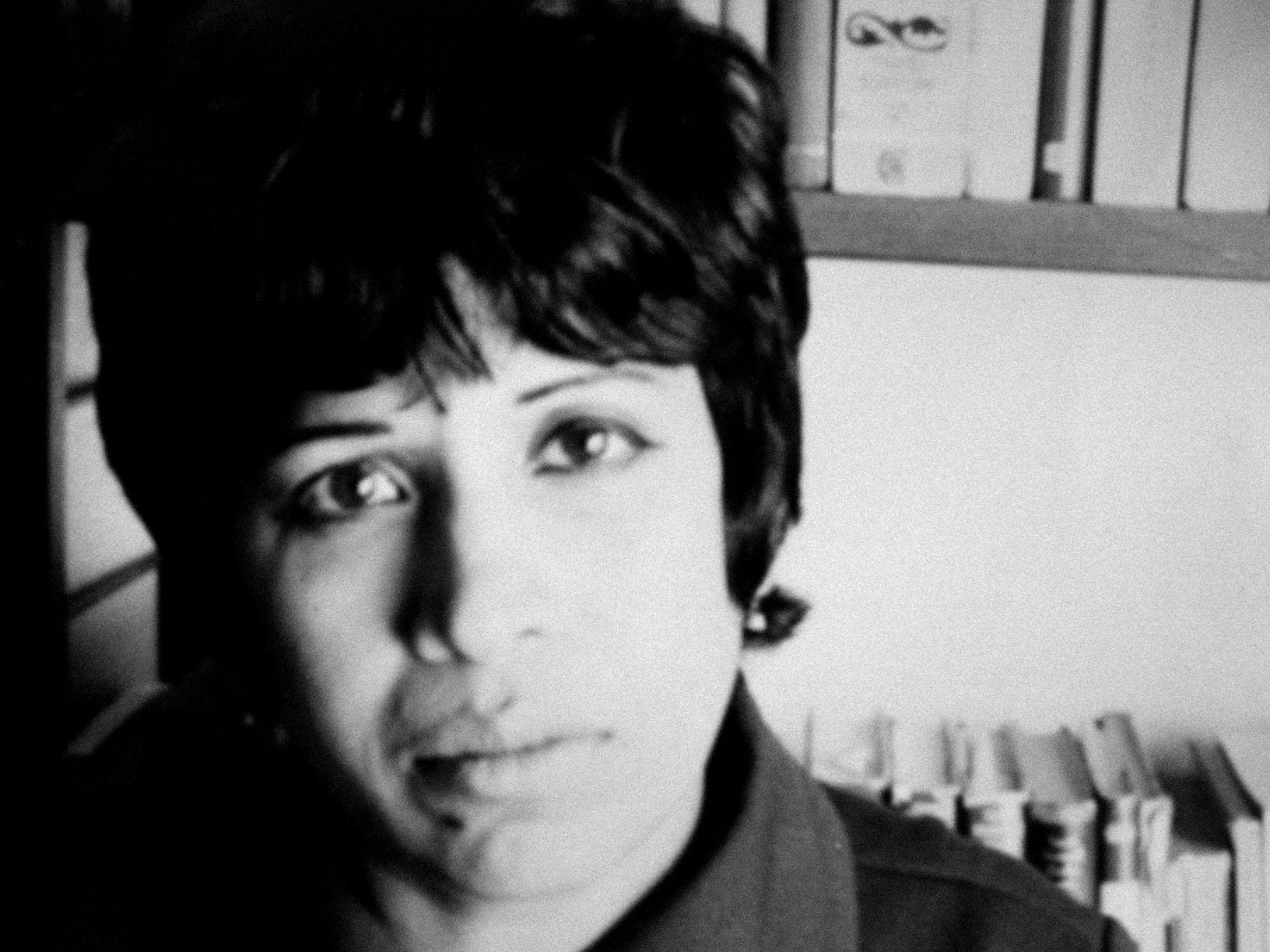- Vimala Devi
Vimala Devi is the pseudonym of Teresa da Piedade de Baptista Almeida, a
Goa n writer, poet and translator.Life in Goa
Infobox Writer
name = Vimala Devi

|frame
imagesize = 200px
caption =
birthdate = 1932
birthplace =Penha-de-Franca ,Goa
deathdate =
occupation = Short story writer,Poet ,Translator
nationality =
period =
genre =
subject =
movement =
debut_works =
influences =
influenced =
website =
footnotes =Vimala Devi was born in 1932 in the village of
Britona in the parish ofPenha-de-Franca , across the Mandovi river fromPanjim , the principal town of Goa. At that timeBritona was owned by Devi's family, which belonged to the uppermostbrahmin caste of "bhatkar " landowners. The "bhatkar" class owned the land and the labour of the "mundkar " class of lower-caste inhabitants in what was essentially a feudal relationship. Although this rural aristocracy was still predominant at this time, this was the period when the decline of the land-owning class first began to set in, a theme that appears in Devi's later fiction. After Goa's incorporation into India laws were passed giving the "mundkar" workers rights to the lands on which they had always lived and worked and abolishing their duty to provide unpaid labour to the "bhatkar" landowners.As in many high caste families at the time, Portuguese was spoken at home alongside Konkani, the vernacular language of Goa. The author pursued primary studies in Portuguese and also in English, which even under the Portuguese administration was widely used by the Christian population of the territory.
Debuts
Whilst in Goa, Vimala Devi contributed articles and poetry to two of the main Portuguese-language newspapers, the Diário da Noite and o Heraldo. Whilst the former is now defunct, the latter continues to appear in an English language edition.
Life in Lisbon
With its internationalist poems, drawing on the experiments of concretism and modern Briitsh verse, "Telepoemas" is a further instance of Devi's engagment with the intellectual laboratory of Europe that was partially smashed by the World Wars - "Surgia Europa/Mais Tarde surgia/Europa chorava" (Europe arose/Later Europe arose/Europe wept). One thing that distinguishes "Telepoemas" from the preceding collection is the increased focus on the bodily, on man and woman, as though the pendulum between the microscopic and the macroscopic had found itself at the level of the human for the instance of this collection. Like the telephone and the television that the title invoke, and which instruments helped bring about the world with which the verse engages, "Telepoemas" relates the sights and sounds, both inner and outer, of man and woman, nature and science as they are distanced and brought together in the routine of the city streets of its age. There is also a notable increase in focus on the painterly, with many references to European artists and a recurrent play with typesetting and the ordering of words on the page.
A Literatura Indo-Portuguesa
Financed by a grant from the "Junta de Investigações do Ultramar" and drawing on material from the Lisbon's "Biblioteca Nacional" and London's "British Library", as well as more than a hundred letters exchanged with writers and intellectuals in India, Devi co-authored with Manuel de Seabra of "A Literatura Indo-Portuguesa". The first volume was a ground-breaking historical account of the history and development of Portuguese-language
Goan literature , supplementing the bibliographical information contained in the work of Father Filinto Dias [Dias, Filinto Cristo. "Esboço da história da literatura indo-portuguesa". Bastorá (Goa), 1963] . The second volulme was an anthology of Portuguese-language Goan writing that contains many works that would todays have disappeared had they now been found and preserved by Devi and Seabra. In 1972, "A Literatura Indo-Portuguesa" was awarded the prestigious Prémio Abílio Lopes do Rego of the Academia das Ciências de Lisboa.Barcelona
In 1971, Devi returned to Lisbon. A year later she left for Barcelona, where she and branched out into writing verse in Spanish, Catalan and
Esperanto , as well as doing translations ofscience fiction and other literature. With Seabra, Devi also composed an up-to-date Catalan-Portuguese dictionary, which was published by the "Enciclopèdia Catalana".Collections of Poetry published in Spain from 1991 to the Present Day
Hora
The first collection of poetry Devi published in Spain was entitled "Hora". Featuring poems written in Spanish, Portuguese and Catalan, in space of "Hora" (with its subtly trilingual title) the three largest Iberian languages achieve a poetic co-existance and equality that has not always been permitted historically and politically.
Rosa Secreta
Bibliography
Prose
*"Monção" Lisbon: Dédalo, 1963 (2nd augmented edition: Lisbon: Escritor, 2003)Translated as:
*"Musono: novelaro" Skövde: Al-fab-et-o, 2000. (version inEsperanto )
*"Monsó". Vilanova i La Geltrú: El Cep i La Nansa, 2002) (version in Catalan)Poetry
*"Súria: poemas" Lisbon: Agência-Geral do Ultramar, 1962.
*"Hologramas" Coimbra: Atlântida Editora, 1969
*"Telepoemas" Coimbra: Atlântida Editora, 1970
*"Hora". El ojo de Polifemo, Barcelono,1991 . (Poetry in Spanish).
*"Rosa secreta". El ojo de Polifemo, Barcelono,1992 . (Poetry in Spanish).
*"El temps irresolt". L'ull de Polifem, Barcelono,1995 . (Poetry in Catalan and Portuguese).
*"Pluralogo". La Kancerkliniko, Thaumiers,1996 . (Poetry inEsperanto ).
*"Speguliĝoj". La Kancerkliniko, Thaumiers,1996 . (Poetry inEsperanto ).
*"Éticas-Ètiques". Vilanova i La Geltrú: El Cep i La Nansa, 2000. (in Portuguese and Catalan).Reference Works
*"A Literatura Indo-Portuguesa" (with
Manuel de Seabra ) Lisbon: Junta de Investigações do Ultramar, 1971
*"A Literatura Indo-Portuguesa 2. Antologia" Lisbon: Junta de Investigações do Ultramar, 1971
*"Diccionari portuguès-català" (withManuel de Seabra ) Barcelona: Enciclopèdia Catalana, 1985References
External References
* [http://www.cronopios.com.br/site/artigos.asp?id=2577 Machado, Everton. "A literatura goesa de língua portuguesa," "Cronópios" 16/07/2006 (in Portuguese)]
* [http://www.info.sophia.ac.jp/fs/staff/kiyo/kiyo34/neves.pdf Neves, Mauro. "A poesia de Vimala Devi," "Bulletin of the Faculty of Foreign Studies" #34. Tokyo: Sophia University, 1999 (in Portuguese)]
*Ortega, Noel Guilherme. "O Problema Social em Vimala Devi", "Estudos Leopoldenses", Vol.18 No.62 1982, pp.91-102
*Willis, Clive. "Vimala Devi and the Goan Diaspora", "Luso-Asian Voices" ("Lusophone Studies"), University of Bristol, 2000
Wikimedia Foundation. 2010.
